We love our pets like family, and most of the time, they genuinely do bring comfort and joy.
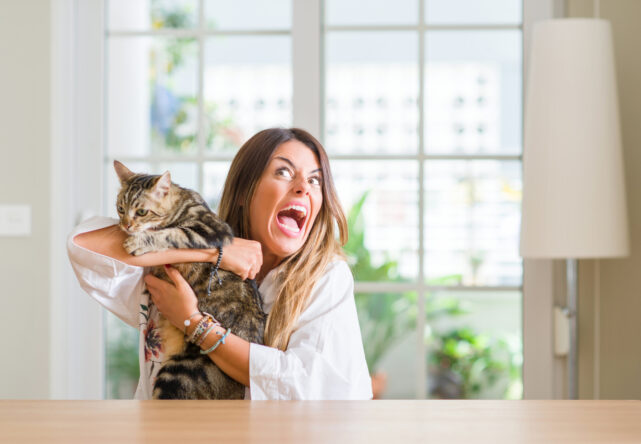
However, not every wag, purr, or squawk automatically means you’re feeling better. Sometimes, the responsibility, mess, or constant need for attention can have the opposite effect—especially if you’re already stretched thin. So how do you know if your beloved pet is calming your nerves or secretly turning up the pressure? These 10 signs can help you figure it out.
1. You feel instantly calmer when they’re near.
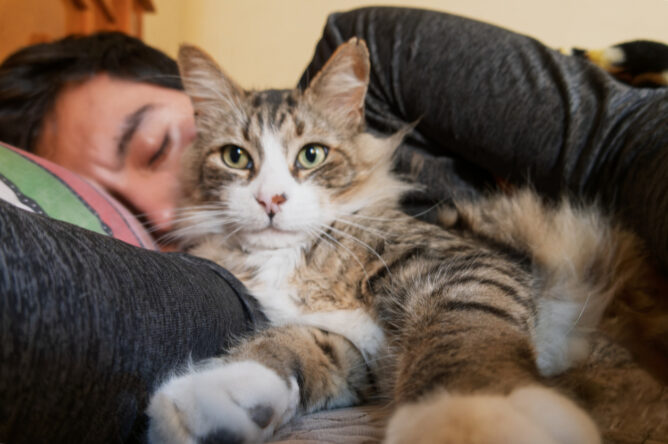
One of the biggest signs your pet is actually helping you relax is how your body reacts to their presence. If sitting next to your cat slows your breathing or cuddling your dog makes your shoulders drop, that’s a strong indicator they’re good for your nervous system. Their presence becomes a signal to your body that it’s safe to soften.
On the flip side, if your pet walks into the room, and you instantly feel tension rising—like you’re bracing for barking, jumping, or chaos—that’s worth noting. A relaxing pet should feel like a comfort, not a disruption waiting to happen.
2. You’re not constantly micromanaging them.

If your pet is generally independent and your day doesn’t revolve around keeping them out of trouble, they’re probably a relaxing presence in your life. You can leave them in the room without worrying about chewed-up furniture or an unexpected mess when you return. However, if you’re on edge every time they move, or you have to follow them around like a stressed-out PA, it’s likely adding to your mental load. A good sign they’re quietly stressing you out is if you can’t let your guard down around them.
3. You enjoy your routines with them.

Whether it’s a morning walk or a cosy bedtime ritual, relaxing pets tend to slide into your routines in ways that feel natural and grounding. You might actually look forward to those little habits because they help anchor your day. However, if every walk feels like a chore or every feeding time feels like another thing you have to juggle, that’s a sign things might be off. If the routine is draining instead of soothing, it could be doing more harm than good.
4. You’re not snapping at other people because of pet stress.

If you’ve ever caught yourself taking out your frustration on someone else after your dog ignored every recall or your cat shredded yet another charging cable, it might mean your pet’s behaviour is spilling into your stress levels. Pets should help you decompress, not light the fuse on a bad mood.
When you start noticing a short fuse around friends or housemates because you’re already irritated by your pet, it’s worth asking whether that’s a pattern. You might not realise how much emotional energy it’s costing you until it shows up somewhere else.
5. You don’t feel guilty when you’re not with them.
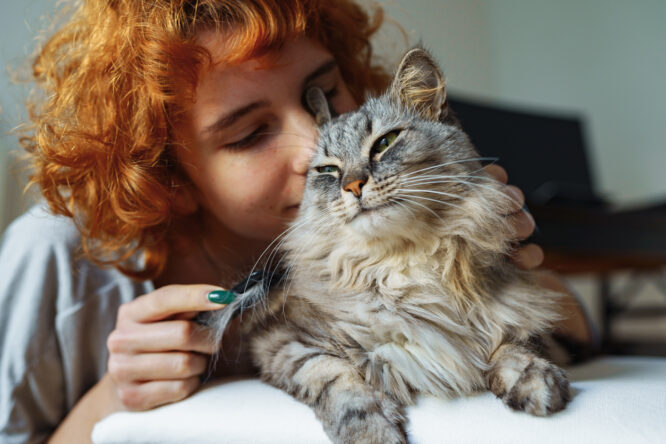
Healthy pet relationships come with a sense of ease—even when you’re apart. You don’t feel guilty for going out, you trust they’ll be okay, and you come home to wagging tails or happy chirps without drama. There’s balance, not pressure. If you can’t relax when you’re away from them, constantly checking pet cams or feeling low-key anxious during every outing, that might be a red flag. Pets should enrich your life, not make it feel like you’re emotionally tethered 24/7.
6. You sleep better, not worse, because of them.

Some pets are like warm, purring sleep aids. They curl up next to you and the world just feels a bit softer. If you’re waking up feeling rested and calm, they’re likely doing wonders for your wellbeing—even if they’re sharing the bed. However, if you’re being woken up all night by whining, pacing, or paws in your face, that’s a different story. A pet that disrupts your rest on the regular is probably doing more to fray your nerves than restore them.
7. You’re not constantly cleaning up after them.

Let’s be honest—pets come with a bit of mess. That being said, if the clean-up is manageable and doesn’t take over your day, it’s usually no big deal. It becomes part of the rhythm of living with them, not a battle. However, if you’re always chasing hairballs, washing accidents, or trying to fix chewed-up belongings, that daily chaos builds up. It might not seem like much at first, but the never-ending mess can leave you quietly stressed and overstimulated.
8. You’re not googling their behaviour every other day.
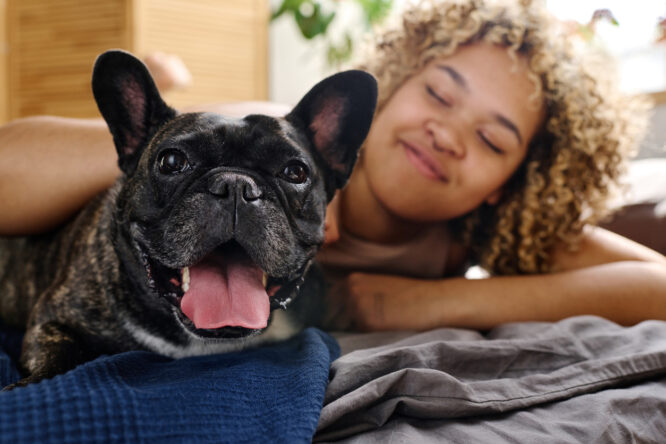
If you’re regularly searching things like “why does my dog suddenly bark at walls” or “cat won’t stop meowing at 3am,” it could be a sign that their behaviour is stressing you out more than you realise. Uncertainty can wear on you, especially when you don’t know what’s normal anymore.
A relaxing pet, even if a bit quirky, usually doesn’t leave you feeling confused or worried all the time. You trust your rhythm with them and don’t feel like you need constant reassurance from Google or online forums.
9. You laugh more because of them.
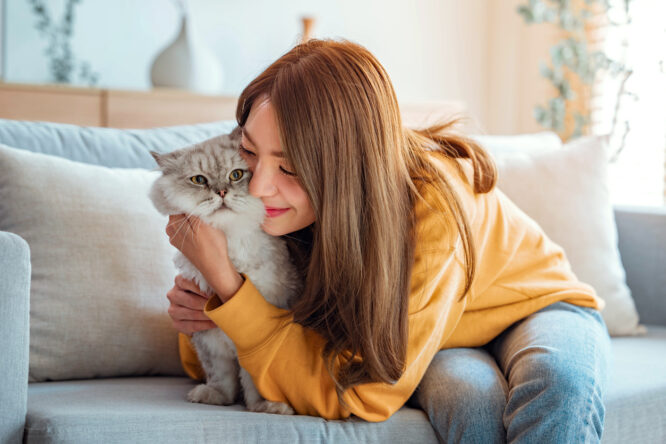
This is a big one. If your pet regularly makes you laugh, smile, or feel more present, they’re almost certainly helping your wellbeing. The weird little habits, the zoomies, the unexpected pounces—they lift your mood without trying.
Sadly, if your pet only makes you sigh, panic, or feel overwhelmed, even the funny moments might be getting lost in the shuffle. When happiness takes a back seat to frustration, it’s worth thinking about what could be adjusted to bring things back into balance.
10. You don’t feel like you’re failing them.

Some pet owners constantly feel like they’re not doing enough. Not training enough, not enriching enough, not bonding enough. If your pet makes you feel like you’re always coming up short, that internal pressure can quietly burn you out.
On the other hand, if you and your pet have a solid connection—where you both feel seen and settled—you’re probably doing better than you think. You don’t need to be the perfect pet parent. You just need to feel like the relationship lifts you, not drags you.




